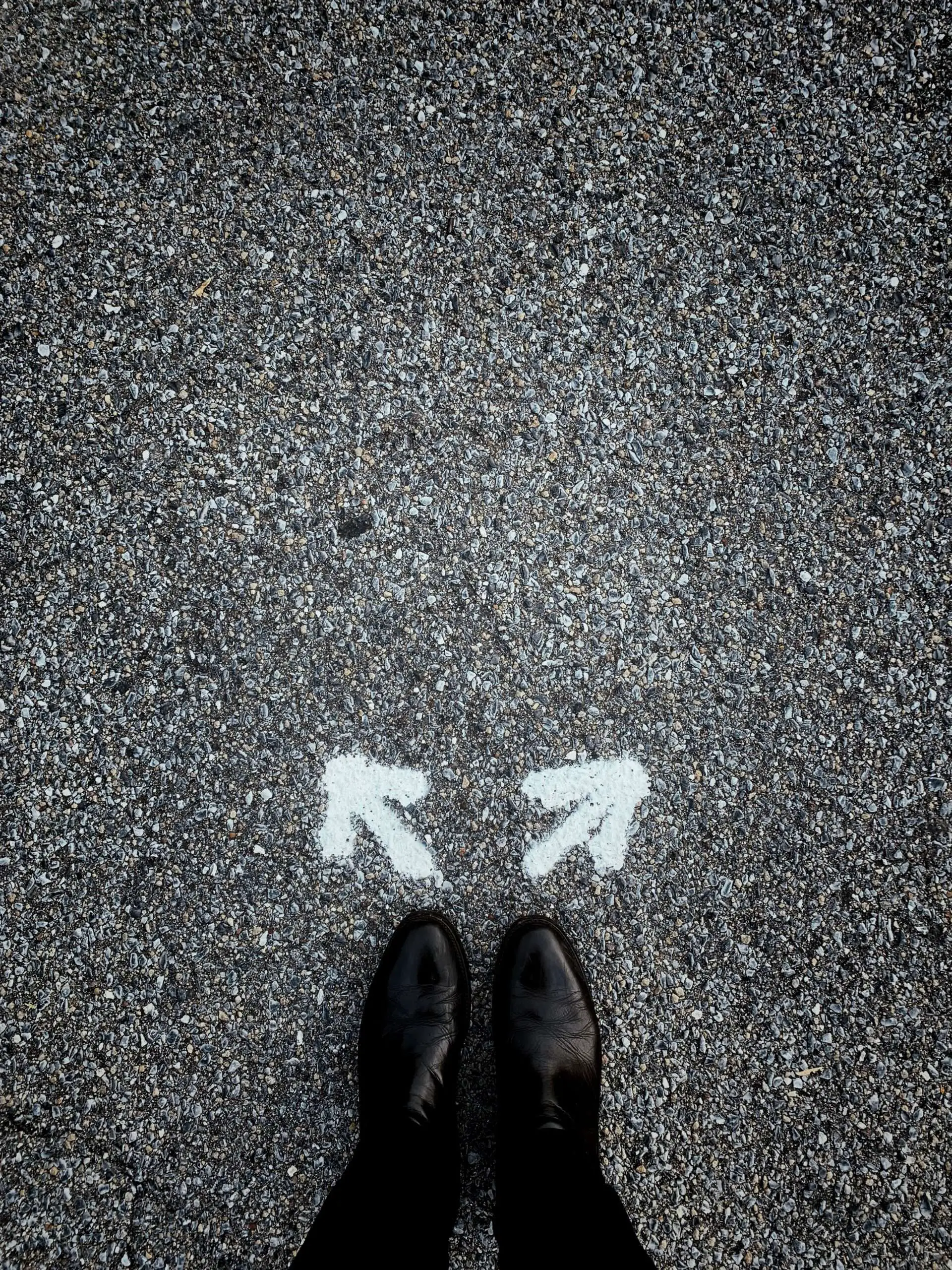Identifying Blame vs. Accountability in SelfGrowth

Embarking on the journey of self-growth is like stepping into uncharted territory within ourselves. Along the way, we encounter moments that challenge us, and how we deal with these challenges can make all the difference.
In this exploration, it’s crucial to figure out the distinction between blame and accountability – two concepts that play a big role in shaping our personal growth.
Picture blame as a way of pointing fingers, either at others or external circumstances, to avoid taking responsibility for our own actions or situations. On the flip side, accountability is about owning up to what’s on our plate, accepting the consequences of our choices, and using them as stepping stones for improvement.
In this article, we’re breaking down the differences between blame and accountability in the context of self-growth. By doing so, we hope to give you a practical guide for navigating your personal journey, making it a bit clearer how these two mindsets can influence the way you evolve.
Blame vs. Accountability: Understanding the Difference
Blame and accountability represent distinct approaches to responding to life’s challenges. Blame is characterized by the inclination to attribute failures or unfavorable circumstances solely to external factors, deflecting personal responsibility.
On the other hand, accountability involves acknowledging one’s actions, decisions, and their consequences, irrespective of whether the outcomes are positive or negative.
The negative impact of blame culture is noteworthy. It tends to foster a victim mentality, where individuals perceive themselves as passive recipients of external forces.
This mindset can hinder personal development by failing to be held accountable and the ability to derive meaningful lessons from experiences. The Blame game, as a coping mechanism, provides momentary relief from discomfort but fails to facilitate genuine growth in individuals own lives.
Conversely, taking accountability offers a constructive approach to self-growth. Taking ownership of one’s actions promotes a sense of agency and control over personal outcomes while learning to accept responsibility.
Rather than externalizing challenges, individuals who practice accountability conversation view setbacks as opportunities for learning and improvement. This mindset shift fosters resilience and adaptability, key components of a progressive personal development journey.
In summary, distinguishing between blame and accountability is essential in fostering personal development. Blame perpetuates a reactive mindset, whereas accountability cultivates a proactive and growth-oriented approach. Recognizing the negative impacts of blame and embracing the benefits of accountability is a pivotal step towards creating a mindset conducive to sustained personal and professional growth.
Moving from Blame to Accountability
Shifting blame-centric mindset to one rooted in accountability is a transformative journey that requires self-reflection, awareness, and a commitment to personal growth. Recognizing and understanding the patterns of assigning blame is the first step in making this transition.
Here’s a closer look at how to navigate this shift:
Self-Reflection
Begin by taking a close look at your reactions to challenges. Are there instances where you find yourself immediately attributing blame to external factors (unintended consequences) or other people (personal relationships).
Reflect on past situations where you felt frustrated, disappointed, or stuck. Identify whether your default response involves finger pointing rather than considering your own contribution such as human error.
Ownership of Emotions
Blame often emerges as a way to cope with uncomfortable emotions. Instead of immediately assigning responsibility elsewhere, take a moment to acknowledge and understand your emotions.
Recognize that it’s okay to feel frustrated, upset, or disappointed, but also understand that these feelings are opportunities for self-reflection and growth.
Shift to Internal Locus of Control
Blame tends to externalize problems, creating a sense of powerlessness. Begin the shift towards accountability by adopting an internal locus of control.
Acknowledge that while external factors may influence your circumstances, you have the power to respond and make choices that shape your outcomes.
Learn from Mistakes
Embrace mistakes as opportunities for learning and growth rather than sources of blame. Understand that making errors is a natural part of the learning process.
Instead of dwelling on who or what went wrong, focus on what you can learn from the experience and how you can improve moving forward.
Celebrate Progress
Acknowledge and celebrate your achievements along the way. Recognize that transitioning from blame to accountability is a gradual process, and every step forward is a victory.
Celebrating progress reinforces the positive changes you’re making in your approach to personal growth.
In essence, moving from blame to accountability involves a conscious shift in mindset and behavior. It’s about taking ownership of your journey, learning from experiences, and actively participating in your own growth. By recognizing and challenging patterns of blame, you pave the way for a more resilient, empowered, and fulfilling path of personal development.
Types of Accountability

Accountability is a multifaceted concept that extends beyond a simple acknowledgment of responsibility. Understanding the various types of accountability can provide individuals with a nuanced perspective on how it operates in different aspects of life.
Here are several types of accountability to consider:
Personal Accountability
This is the foundational form of accountability that involves taking responsibility for one’s actions, decisions, and their consequences.
Personal accountability is about recognizing that we have control over our choices and outcomes, whether positive or negative. It forms the cornerstone of self-growth and development.
Interpersonal Accountability
Interpersonal accountability centers around taking responsibility for how our actions impact others.
It involves recognizing the consequences of our behavior on relationships, whether in personal or professional settings. In terms of Interpersonal accountability, people tend to foster trust, communication, and collaboration in social interactions.
Professional Accountability
In the workplace, organizational accountability is crucial for individual and collective success. It involves meeting job expectations, fulfilling assigned tasks, and taking ownership of projects.
Professional accountability also encompasses acknowledging mistakes, human error, learning from them, and contributing to a positive work environment.
Social Accountability
Social accountability extends beyond personal and professional realms to encompass broader societal responsibilities.
This type of accountability involves recognizing one’s impact on the community and the world. It may include actions such as environmental stewardship, ethical consumerism, and social activism. All are considered quality programs.
Recognizing these various types of accountability allows individuals to navigate the complexities of responsibility in different aspects of life. By understanding the nuances of each type, individuals can cultivate a comprehensive approach to accountability, contributing to personal growth, positive relationships, and the betterment of communities and society at large.
Embracing Accountability: Tips and Strategies
Embracing accountability is a transformative process that involves adopting a proactive stance towards personal and collective responsibilities.
Here are some practical tips and strategies to help individuals navigate and successfully embrace accountability in various aspects of their lives:
Cultivate Self-Awareness
Start by developing a keen sense of self-awareness. Regularly reflect on your actions, decisions, and their outcomes.
Understand your strengths, weaknesses, and areas for improvement. Acknowledging your starting point is crucial for fostering personal growth through accountability.
Set Clear Goals
Establish clear and achievable goals for yourself. Whether they are related to personal development, career, relationships, or health, having well-defined objectives provides a roadmap for your journey.
Break down larger goals into smaller, manageable tasks to make progress more attainable.
Own Your Mistakes
Embrace the idea that mistakes and human error are part of the learning process. When things go wrong, resist the urge to shift blame and instead take responsibility for your actions.
Own up to your mistakes, analyze what went wrong, and use the experience as an opportunity for growth and improvement.
Establish Personal Standards
Set personal standards and values that align with your aspirations. Having a clear set of principles helps guide your decisions and actions.
When faced with choices, refer back to your established standards to ensure consistency with your personal values.
Create Accountability Partnerships
Engage with friends, colleagues, or mentors who can serve as accountability partners. Share your goals and commitments with them, and encourage regular check-ins.
Knowing that someone else is aware of your objectives adds a layer of external accountability, motivating you to stay on track.
Embracing accountability is an ongoing process that involves intentional effort and a commitment to growth. By incorporating these tips and strategies into your daily life, you can cultivate a mindset that not only embraces responsibility but thrives on the opportunities for positive change and development it presents.
Final Thoughts – Identifying Blame vs. Accountability in SelfGrowth
In wrapping up, when it comes to getting better at the whole self-improvement thing, it’s vital to tell blame and accountability apart. Blaming stuff feels like a quick fix, a momentary relief from problems. But the catch is, it keeps us stuck, playing the victim.
Now, accountability is where the real deal is. It’s about saying, “Yeah, I did that, and I can learn from it.” It turns setbacks into chances to grow, making us tougher and more positive about the future.
So, as we walk the road of self-improvement, let’s keep an eye out for blame’s tricky ways and choose accountability. It’s in owning up to our stuff that we really start to change.
Learning from the good and the not-so-good bits, accountability sets us free from holding ourselves back and gets us moving towards a better version of us.
